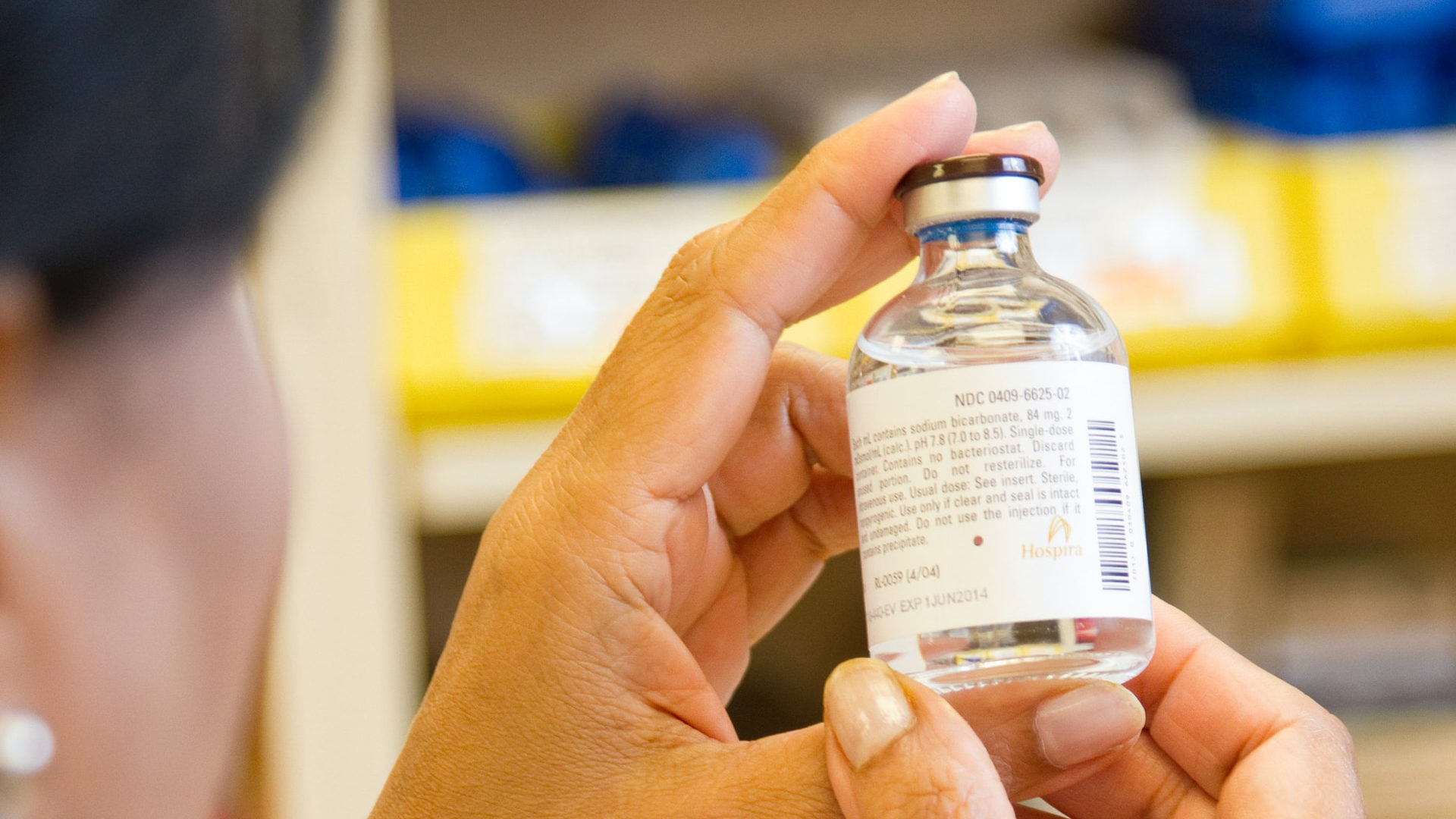Retail Scanner
A question of refills but also one of trade marks
Juli 2022
The case
Advocate General Giovanni Pitruzzelli provided an Opinion on 12th May 2022 in a case being heard by the Court of Justice of the European Union (CJEU), originating from the Finnish national courts. The case involves the companies Mysoda and Sodastream and concerns the potential liability for trade mark infringement in relation to repackaging, relabelling and refilling products. The case has centred on MySoda’s actions in reusing Sodastream’s refillable bottles producing carbonated drinks. MySoda refilled them with carbon dioxide and relabelled them. Although the bottles did have new labels, they remained engraved with the Sodastream trade marks.
The Finnish national courts referred the following questions to the CJEU and on which the Advocate General provided his opinion on 12th May 2022:
Before repackaging and relabelling can be deemed acceptable, must these acts be necessary to prevent artificial market partitioning?
- Where a third party refills a bottle with carbon dioxide for resale, removes the original label and replaces it with a label with its own logo and the mark of the person who put the bottle on the market is still visible, is this only acceptable where it is necessary?
- Can the removal and replacement of the label on which the mark is affixed be considered to in principle undermine the function of the mark i.e. indicating brand origin?
- Must the removal and replacement of label be necessary for marketing?
What did the Advocate General find?
Advocate General Giovanni Pitruzzelli’s opinion was very balanced in relation to the two parties. He found that repackaging, relabelling and refilling of products was acceptable, however, certain conditions should be met before this could take place.
The Advocate General held that repackaging and relabelling of products must be justified as necessary for third party access, given the nature of the products and their destination. The legitimate interests of the trade mark proprietor must also be safeguarded, for example, through clear labelling and account must be taken of common industrial practices.
It should be noted that the Opinion of the Advocate General, although persuasive, is not a final decision. Nevertheless, the CJEU generally follow the reasoning of the Advocate General in around 70 percent of its cases.
Importance to retailers and brand owners
This case will be hugely important for the retail sector, as it has implications for the pressing need for sustainability and a circular economy, in which products are reused, for example, by refilling, repackaging and relabelling. It potentially could have knock on effects or at least provide guidance on the issue of upcycling and where replacement consumables are provided for branded products by third parties, such as cassettes for recycling nappy machines or coffee pods.
If the Advocate General’s opinion is followed, retailers and brand owners involved in the refilling, repackaging or relabelling of products, may have to justify the necessity of this in order to avoid trade mark infringement. The decision will ultimately create greater clarity with regards to acceptable sustainability practices, within the context of free movement of goods in the EEA.
EU case law on the issue of repackaging originally applied only to the cross-border sale of goods and pharmaceutical products in particular. If the AG’s Opinion is followed, this would now appear to apply within the same national market and more clearly to products outside the pharmaceutical sector.
Key issues for the retail sector are further highlighted through arguments from both sides. Sodastream’s arguments speak to the potential concerns of trade mark proprietors, whose goods may be reused. They have argued that they had legitimate reasons to prevent MySoda’s actions and therefore the free movement of goods within the EEA. They argued that MySoda had changed or impaired the bottle and its contents. MySoda’s actions would also mislead consumers as to an economic connection between the marks and damage would be caused to Sodastream’s profits and reputation. This point is also of crucial importance when considering upcycling.
On the other hand, MySoda’s arguments highlight the potential issues that may arise for businesses that would like to reuse products, but face possible claims against them for trade mark infringement. They countered that their actions would not affect the function of Sodastream’s trade mark to indicate the origin of the bottles. The consumer would understand that MySoda’s label only indicated the origin of the carbon dioxide and the refiller which was MySoda, not the bottles. Sodastream’s engraving indicated the origin of the bottles themselves. This point is important when one considers the rising needs and prominence of the ‘circular economy’ and recycling, a particular rising trend in the fashion sector.
Background
The case at hand sits within the context of the free movement of goods within the EEA. This is currently regulated by the principle of exhaustion, which is codified in Article 7 of the Trade Mark Directive. This holds that a trade mark proprietor only has the right to the initial sale of their goods. Once this sale has been made by the proprietor or with their consent, they cannot subsequently restrain the movement or sale of goods within the EEA, particularly where the use complies with honest practices in industrial or commercial matters.
Case law, involving Cenrafarm, Xerox, Peak Holding and American Home Products, has generally maintained the principle of exhaustion, as well as the exception that restraint on the movement of goods can only take place where the trade mark owner had legitimate reasons for preventing this. One example of a legitimate reason, which is being put forward by Sodastream in the present case, is where the further commercialisation interfered with the function of a trade mark to indicate the origin of goods or would change or impair those goods.
Of particular importance is the case Bristol-Myers Squibb v Paranova, which summarises the conditions that must be met for further commercialisation of a trade mark, in relation to the cross-border sale of pharmaceuticals:
- Enforcement of the trade mark right would artificially partition the EEA market;
- The repackaging does not adversely affect the original condition of the product;
- The parallel importer complies with certain obligations, as to labelling;
- The new packaging does not damage the reputation of the mark;
- The importer gives notice and provides samples to the trade mark proprietor.
If the Advocate General’s opinion is followed, this case would apply to goods more clearly outside the pharmaceutical sector and apply to intra-national trade within a country.
It has already been established in Viking Gas case that parallel importation is not necessary for exhaustion to take place. Indeed, where the defendant had placed bottled gas on the market, with reused bottles, they were not liable for trade mark infringement, as trade mark proprietor’s rights had been exhausted with the first sale.
As such, whether exhaustion has taken place in the current case, which does not involve parallel imports, is not at issue. It is rather, whether Sodastream has legitimate reasons for preventing MySoda refilling, repackaging and relabelling their products, in addition to whether the necessity of MySoda’s actions can be justified.
The traditional defence to trade mark infringement has indeed been exhaustion of rights and that the trade mark proprietor did not have legitimate reasons for preventing free movement of goods. MySoda has argued that their actions would not negatively impact the Sodastream brand.
Now for the CJEU to decide
As stated earlier, Advocate General Giovanni Pitruzzelli’s opinion is only advisory and the CJEU will make a final decision in relation to the questions put forward by Finland’s national courts. However, it is very likely that at the least, the key aspects of the Advocate General’s opinion will be incorporated.
The Advocate General’s Opinion largely follows previous case law in relation to exhaustion and the legitimate reasons for preventing the free movement of goods in the EEA. The only difference is that this case deals with new questions that have arisen from rising sustainability and a move towards a circular economy.
The overarching questions are, whether exhaustion in the EEA can take place within a national market and whether the previous case law, which largely applies to pharmaceutical products can apply generally to all brands. The Advocate General’s opinion appears to answer both questions in the affirmative and thus provides a logical progression in terms of the case law, with a view to the rising importance of sustainability.
The Advocate General’s opinion further provides a framework, through which sustainability practices can be assessed in relation to their impact on trade marks and brands. Necessity appears to be the key element that will need to be proven by retailers and businesses, who would like to reuse, repackage, refill or relabel products.
Additionally, following on from Brexit, it is important to take note that the final decision in this case will no longer have a direct impact in the United Kingdom. The UK will likely find its own way to navigate through this new landscape of sustainability as it relates to trade mark law.
This article was prepared by HGF’s Trainee Trade Mark Attorney Melissa Buamah.
































